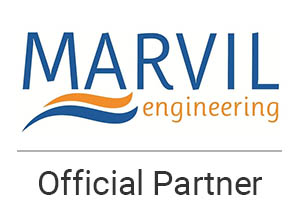Notice about Law 162013/
While waiting for the publication of the regulation development of Law 16/2013, which clarifies the confusing points in article 5 of said law, the small committee from AEFYT (Association of Cooling Businesses and their Technologies) interpreted the law in agreement with the purpose of said law (whoever contaminates, pays) and responded to the questions that came up, applying their interpretation to their responses.
1 . – In case the authorized and certified installing company buys a tax-free fluoride coolant after 01/01/2014, should the company bill the client for completing the new installation or for refilling an existing one after that date, working as the tax collector and paying it off through payment periods established by the tax office?
The installing company should bill the tax in both cases and pay it off in the corresponding pay periods. In the first case, if exempt, the owner is the person who should apply for a tax return in the tax office, crediting the extension through the certificate of the installer (Article 14, Point 2 of Law 36/2013).
2 . – Can more gas accumulate in the machine room than what is ordered by the RSIF (Safety Rules for Cooling Systems), meaning 20% of the load of the cooling system, but without exceeding the maximum of 150 kg? No.
3 . – Can the client accumulate more cooling outside of the installments in order to support self-supply use?
Only if they were automatically controlled (registered as described by the RSIF), in which case they should reclaim the tax and pay it off in the tax office.
4 . – Can the installing company sell coolants to the owner?
Only the “installed coolants” or the back-up that the RSIF allows. Warehouses in machine rooms, taxing both and recording the borrowed operation in the registered installation book and in the registered book of fluoride coolant administration.
5 . – Can the installing company use a coolant from provided by the owner in the cooling installation?
No, the provider is responsible for filling the cooling system with a quality coolant and the credited origin of the coolant should be the installing company. The company should properly note support interventions, corresponding to the borrowed service, in the registered installation book and in the registered book of fluoride coolant administration. Consequently, the company should bill the operation with the corresponding tax as written in the law.
6 . – Can an installing company get gas from another country that forms a part of the European Union, free of taxes?
It CAN get gas from another E.U. country, but it should reclaim the tax and pay it off in the tax office and charge those taxes to its client in the support presentation period.
7 . – What documentation does the waste producer need to apply for a tax return?
The Control and Tracking document (el document de Control y Seguimiento), properly filled out by Waste Management Consultant, to who received the waste.
8 . – Which bodies, when, and how will they return the tax? (Article 14 Points 1 and 2)
1. In the self-payments that correspond to each of the payment periods, and in conditions that are regularly established. Contributors will be able to deduct the paid tax quotas on greenhouse gases. This confirms that the client turned in waste recognized by a proper public administration in the fields of projector destruction, recycled or regrowth in agreement with required controls and documentation for sectoral waste legislation.
They will complete deductions through the reduction of the quota that corresponds with the pay period in which the destruction takes place. When the amount of proper deductions exceeds the importation of the accrued quotas in the same pay period, the one that exceeds the limit can serve as compensation in previous self-payments, as long as more than four years haven’t passed since the original presentation of the self-payment.
2. The final greenhouse gas consumers that Hayani supported tax and would have had the right to apply extensions section seven or turn in greenhouse gases to a proper public administration in the fields of projector destruction, recycled or regrowth in agreement with required controls and documentation for sectoral waste legislation. As long it wasn’t considered a previously deducted object, they will be able to apply for a deduction at the tributary administration in the regularly established conditions.
Madrid, November 6, 2013
Delegated Commission of the Environment Committee and the coolant factory and distributors sub group

